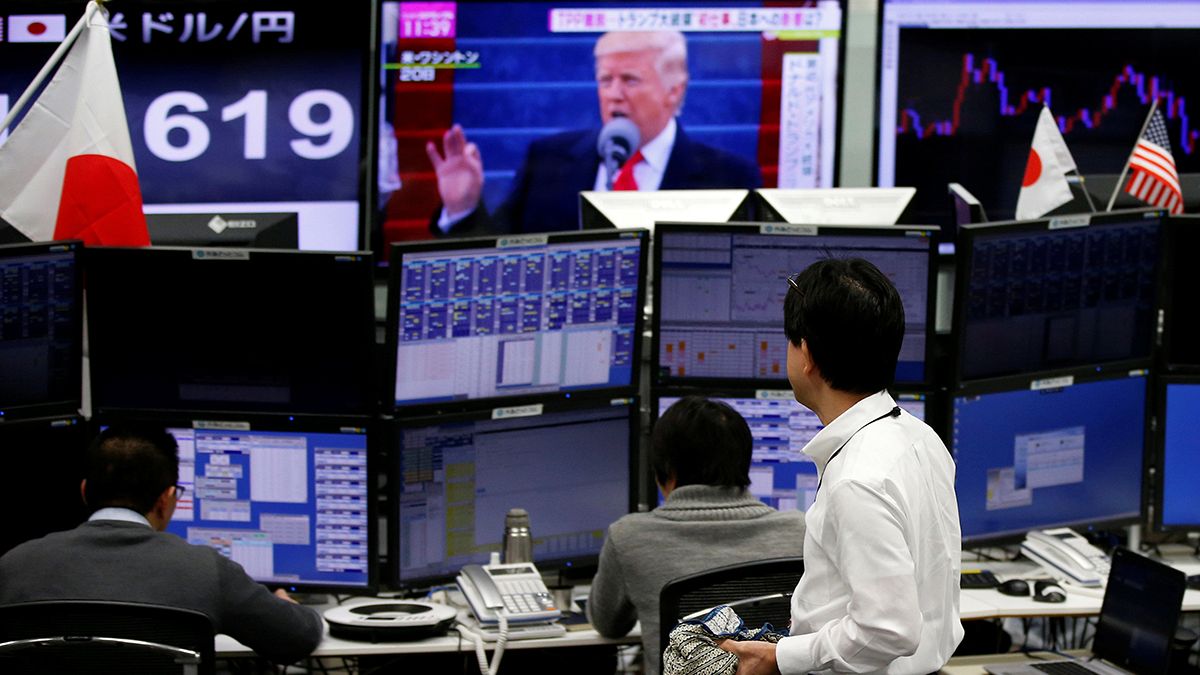The market rally is already running out of steam, and Trump’s honeymoon with investors might be coming to an end. There are several reasons for this.
By Nouriel Roubini, professor at NYU’s Stern School of Business and Chairman of Roubini Macro Associates
When Donald Trump was elected President of the United States, stock markets rallied impressively. Investors were initially giddy about Trump’s promises of fiscal stimulus, deregulation of energy, health care, and financial services, and steep cuts in corporate, personal, estate, and capital-gains taxes. But will the reality of Trumponomics sustain a continued rise in equity prices?
It is little wonder that corporations and investors have been happy. This traditional Republican embrace of trickle-down supply-side economics will mostly favor corporations and wealthy individuals, while doing almost nothing to create jobs or raise blue-collar workers’ incomes. According to the nonpartisan Tax Policy Center, almost half of the benefits from Trump’s proposed tax cuts would go to the top 1% of income earners.
Yet the corporate sector’s animal spirits may soon give way to primal fear: the market rally is already running out of steam, and Trump’s honeymoon with investors might be coming to an end. There are several reasons for this.
For starters, the anticipation of fiscal stimulus may have pushed stock prices up, but it also led to higher long-term interest rates, which hurts capital spending and interest-sensitive sectors such as real estate. Meanwhile, the strengthening dollar will destroy more of the jobs typically held by Trump’s blue-collar base. The president may have “saved” 1,000 jobs in Indiana by bullying and cajoling the air-conditioner manufacturer Carrier; but the US dollar’s appreciation since the election could destroy almost 400,000 manufacturing jobs over time.
Moreover, Trump’s fiscal-stimulus package might end up being much larger than the market’s current pricing suggests. As Presidents Ronald Reagan and George W. Bush showed, Republicans can rarely resist the temptation to cut corporate, income, and other taxes, even when they have no way to make up for the lost revenue and no desire to cut spending. If this happens again under Trump, fiscal deficits will push up interest rates and the dollar even further, and hurt the economy in the long term.
A second reason for investors to curb their enthusiasm is the specter of inflation. With the US economy already close to full employment, Trump’s fiscal stimulus will fuel inflation more than it does growth. Inflation will then force even Janet Yellen’s dovish Federal Reserve to hike up interest rates sooner and faster than it otherwise would have done, which will drive up long-term interest rates and the value of the dollar still more.
Third, this undesirable policy mix of excessively loose fiscal policy and tight monetary policy will tighten financial conditions, hurting blue-collar workers’ incomes and employment prospects. An already protectionist Trump administration will then have to pursue additional protectionist measures to maintain these workers’ support, thereby further hampering economic growth and diminishing corporate profits.
If Trump takes his protectionism too far, he will undoubtedly spark trade wars. America’s trading partners will have little choice but to respond to US import restrictions by imposing their own tariffs on US exports. The ensuing tit-for-tat will hinder global economic growth, and damage economies and markets everywhere. It is worth remembering how America’s 1930 Smoot-Hawley Tariff Act triggered global trade wars that exacerbated the Great Depression.
Fourth, Trump’s actions suggest that his administration’s economic interventionism will go beyond traditional protectionism. Trump has already shown his willingness to target firms’ foreign operations with the threat of import levies, public accusations of price gouging, and immigration restrictions (which make it harder to attract talent).
The Nobel laureate economist Edmund S. Phelps has described Trump’s direct interference in the corporate sector as reminiscent of corporatist Nazi Germany and Fascist Italy. Indeed, if former President Barack Obama had treated the corporate sector in the way that Trump has, he would have been smeared as a communist; but for some reason when Trump does it, corporate America puts its tail between its legs.
Fifth, Trump is questioning US alliances, cozying up to American rivals such as Russia, and antagonizing important global powers such as China. His erratic foreign policies are spooking world leaders, multinational corporations, and global markets generally.
Finally, Trump may pursue damage-control methods that only make matters worse. For example, he and his advisers have already made verbal pronouncements intended to weaken the dollar. But talk is cheap, and open-mouth operations have only a temporary effect on the currency.
This means that Trump might take a more radical and heterodox approach. During the campaign, he bashed the Fed for being too dovish, and creating a “false economy.” And yet he may now be tempted to appoint new members to the Fed Board who are even more dovish, and less independent, than Yellen, in order to boost credit to the private sector.
If that fails, Trump could unilaterally intervene to weaken the dollar, or impose capital controls to limit dollar-strengthening capital inflows. Markets are already becoming wary; full-blown panic is likely if protectionism and reckless, politicized monetary policy precipitate trade, currency, and capital-control wars.
To be sure, expectations of stimulus, lower taxes, and deregulation could still boost the economy and the market’s performance in the short term. But, as the vacillation in financial markets since Trump’s inauguration indicates, the president’s inconsistent, erratic, and destructive policies will take their toll on domestic and global economic growth in the long run.
Project Syndicate 2017
The views expressed in opinion articles published on euronews do not represent our editorial position
